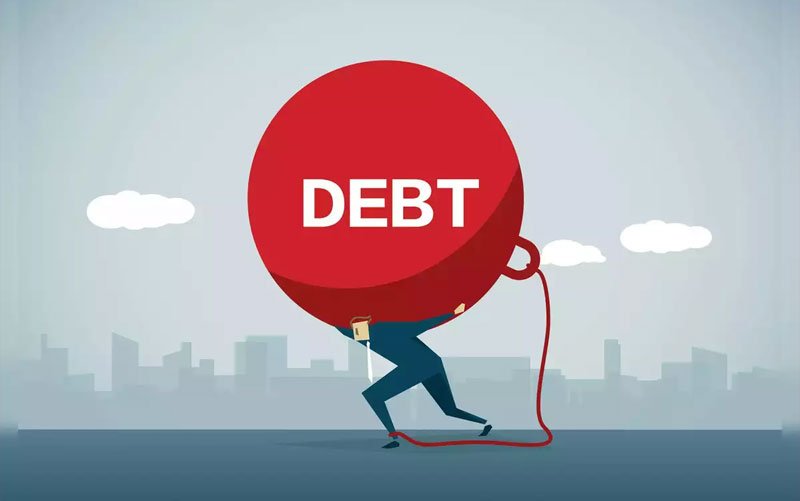Debt can often feel like an overwhelming burden that keeps us from achieving our financial goals. Whether it’s credit card debt, student loans, or personal loans, many people find themselves trapped in a cycle of borrowing and struggling to make ends meet. However, it’s important to remember that you are not alone in this journey. By sharing your own debt repayment story, you have the power to inspire and motivate others who are facing similar challenges.
In this article, we will explore the significance of sharing your debt journey, the benefits it brings, and how you can effectively communicate your story to inspire others.
The Power of Sharing Your Debt Repayment Story
1. Breaking the Stigma of Debt
Debt has long been a taboo topic in society. Many people feel ashamed or embarrassed about their financial struggles and are hesitant to discuss them openly. However, by sharing your debt repayment story, you can help break the stigma surrounding debt. When individuals come forward and talk about their experiences, it creates a safe space for others to do the same. It fosters a sense of community and support, reminding people that they are not alone in their financial challenges.
2. Providing Hope and Motivation
Debt can be incredibly discouraging, especially when it seems insurmountable. By sharing your story of successfully overcoming debt, you provide hope and motivation to others who may be feeling hopeless and trapped. Knowing that someone else has faced similar difficulties and come out on the other side can be incredibly empowering. It encourages individuals to believe in their ability to overcome their debt and work towards a brighter financial future.
3. Sharing Strategies and Lessons Learned
Each debt repayment journey is unique, and by sharing your story, you can offer valuable insights and strategies that worked for you. Whether it’s budgeting tips, negotiating with creditors, or finding additional sources of income, your experiences can provide practical guidance to those who are struggling. By sharing the lessons you’ve learned along the way, you can help others avoid common pitfalls and make informed decisions about their debt repayment strategies.
How to Effectively Communicate Your Debt Repayment Story
1. Be Authentic and Transparent
When sharing your debt repayment story, it’s important to be authentic and transparent. People connect with stories that feel genuine and relatable. Share both the challenges you faced and the victories you achieved. Be honest about the mistakes you made and the lessons you learned. By being open about your experiences, you create a deeper connection with your audience and establish trust.
2. Provide Context and Background
To make your debt repayment story more engaging and relatable, provide some context and background information. Explain how you accumulated your debt and the impact it had on your life. This helps readers understand your journey and relate it to their circumstances. By providing context, you create a narrative that captures the reader’s attention and keeps them engaged throughout your story.
3. Highlight Milestones and Progress
As you share your debt repayment story, highlight the milestones and progress you made along the way. Celebrate the small victories, such as paying off a credit card or reaching a specific savings goal. These milestones serve as powerful motivators for others who are on their debt repayment journey. By emphasizing the progress you made, you inspire others to keep going and stay committed to their goals.
4. Offer Practical Tips and Advice
In addition to sharing your personal story, offer practical tips and advice that can help others in their debt repayment journey. Provide actionable steps that readers can take to improve their financial situation. Whether it’s creating a budget, exploring debt consolidation options, or seeking professional assistance, offer resources and suggestions that can guide individuals toward financial stability. By providing practical advice, you empower others to take control of their debt and make positive changes in their lives.
Tips for Debt Repayment
- Create a Budget: Start by assessing your income and expenses to create a realistic budget. Identify areas where you can cut back on unnecessary spending and allocate more money towards debt repayment.
- Prioritize High-Interest Debts: Focus on paying off debts with high interest rates first, as they tend to accumulate more interest over time. By tackling these debts early on, you can save money in the long run.
- Snowball or Avalanche Method: Consider using either the snowball or avalanche method to prioritize your debts. With the snowball method, you pay off the smallest debt first and then move on to the next one. The avalanche method involves prioritizing debts based on interest rates, starting with the highest.
- Negotiate with Creditors: Reach out to your creditors and try to negotiate lower interest rates or a more manageable repayment plan. Many creditors are willing to work with you if it means they will eventually receive the full payment.
- Cut Expenses: Look for ways to cut down on expenses in your daily life. Cancel unnecessary subscriptions, reduce dining out, and find more affordable alternatives for your regular expenses.
- Avoid Taking on New Debt: While repaying your existing debt, avoid taking on additional debt. This will prevent you from falling into a cycle of continuous borrowing and make it easier to focus on repaying what you owe.
- Consider Debt Consolidation: If you have multiple debts, consolidating them into a single loan with a lower interest rate can simplify your repayment process. It can also help you save on interest charges.
Common Mistakes to Avoid when Repaying Debt
When it comes to debt repayment, there are several common mistakes that you should avoid. By being aware of these pitfalls, you can navigate your debt repayment journey more effectively. Here are some common mistakes to steer clear of:
- Ignoring Interest Rates: Not paying attention to interest rates can cost you more money in the long run. Make sure to prioritize debts with higher interest rates first, as they accrue more interest over time. By addressing high-interest debts early on, you can save on interest charges.
- Making Only Minimum Payments: Paying only the minimum amount due each month can prolong your repayment journey. While minimum payments keep you in good standing, they often extend the time it takes to pay off the debt and increase the overall interest paid. Whenever possible, pay more than the minimum to expedite your debt repayment.
- Neglecting an Emergency Fund: Failing to establish an emergency fund can hinder your progress in debt repayment. Without savings, unexpected expenses can force you to rely on credit cards or loans, increasing your debt further. Prioritize building an emergency fund alongside your debt repayment efforts.
- Not Getting Help When Needed: If you’re feeling overwhelmed or struggling to manage your debt, it’s essential to seek help. Ignoring the problem or trying to handle it on your own can lead to more significant financial challenges. Reach out to credit counseling agencies or financial professionals who can provide guidance and support.
- Using Debt Repayment Methods Unsuited to Your Situation: Different debt repayment methods work for different individuals. It’s important to choose a strategy that aligns with your financial situation and preferences. Whether it’s the snowball method, avalanche method, or debt consolidation, select an approach that suits your needs best.
- Not Staying Motivated: Debt repayment can be a long and challenging journey. It’s crucial to stay motivated throughout the process. Celebrate milestones, track your progress, and find support from friends, family, or online communities. Maintaining motivation will help you stay committed to your debt repayment goals.
- Forgetting to Take Care of Yourself: Lastly, don’t forget to prioritize self-care during your debt repayment journey. Financial stress can take a toll on your overall well-being. Take breaks, engage in activities that bring you joy, and seek emotional support when needed. Taking care of yourself will help you stay mentally and emotionally resilient.
Conclusion
Your debt repayment journey is more than just a personal experience – it has the power to inspire and motivate others who are facing similar challenges. By sharing your story, you break the stigma surrounding debt, provide hope and motivation, and offer practical guidance to those in need. Remember to be authentic, provide context, highlight milestones, and offer practical tips when communicating your debt repayment story. Your words have the potential to transform lives and empower individuals to embark on their journey towards financial freedom. So, don’t hesitate to share your story and inspire others along the way.
FAQs
How long will it take to repay my debt?
The time it takes to repay your debt depends on various factors, such as the amount of debt, interest rates, and your repayment strategy. By creating a budget, making consistent payments, and potentially increasing your payments, you can shorten the repayment timeline.
Should I save money or pay off debt first?
It’s often recommended to strike a balance between saving and debt repayment. Start by building a small emergency fund to cover unexpected expenses, and then focus on aggressive debt repayment. By having some savings, you can avoid relying on credit cards or loans when emergencies arise.
Should I consolidate my debts?
Debt consolidation can be beneficial if it helps simplify repayment and lower your overall interest rate. It involves combining multiple debts into a single loan or credit card with more favorable terms. However, it’s essential to carefully assess the terms and fees associated with consolidation to ensure it’s the right choice for you.
What if I can’t make my minimum payments?
If you’re unable to meet your minimum payments, contact your creditors immediately. Explain your situation and inquire about possible repayment options or hardship programs. Ignoring the issue can lead to penalties, additional fees, and damage to your credit score.
Should I negotiate with my creditors?
Negotiating with creditors can be worthwhile, especially if you’re struggling to make payments. Reach out to your creditors to discuss options like lower interest rates, extended payment terms, or debt settlement arrangements. Many creditors are willing to work with you if it means they will eventually receive the full payment.
Will repaying my debt improve my credit score?
Yes, consistently repaying your debt can have a positive impact on your credit score. Timely payments and reducing your debt-to-income ratio demonstrate responsible financial behavior to credit reporting agencies. Over time, this can help improve your credit score.
Can I still use credit cards while repaying debt?
Using credit cards while repaying debt should be approached with caution. It’s advisable to limit credit card usage or use them for essential expenses only. Continued credit card spending can increase your debt load and make it more challenging to repay what you owe.
Are there any alternatives to bankruptcy for managing debt?
Bankruptcy should be considered as a last resort. Before exploring bankruptcy, you can explore alternatives like debt consolidation, credit counseling, or negotiating with creditors. These options may help you manage your debt effectively without resorting to bankruptcy.
How can I stay motivated during the debt repayment process?
Staying motivated can be challenging, but there are strategies you can employ. Set realistic goals, track your progress, celebrate milestones, and find support from friends, family, or online communities. Remind yourself of the benefits of becoming debt-free and the financial freedom it will bring.
Should I seek professional help for debt repayment?
If you’re feeling overwhelmed or struggling to manage your debt on your own, seeking professional help can be beneficial. Credit counseling agencies and financial professionals can provide guidance, negotiate with creditors, and help you develop a personalized debt repayment plan based on your unique circumstances.













No Comment! Be the first one.